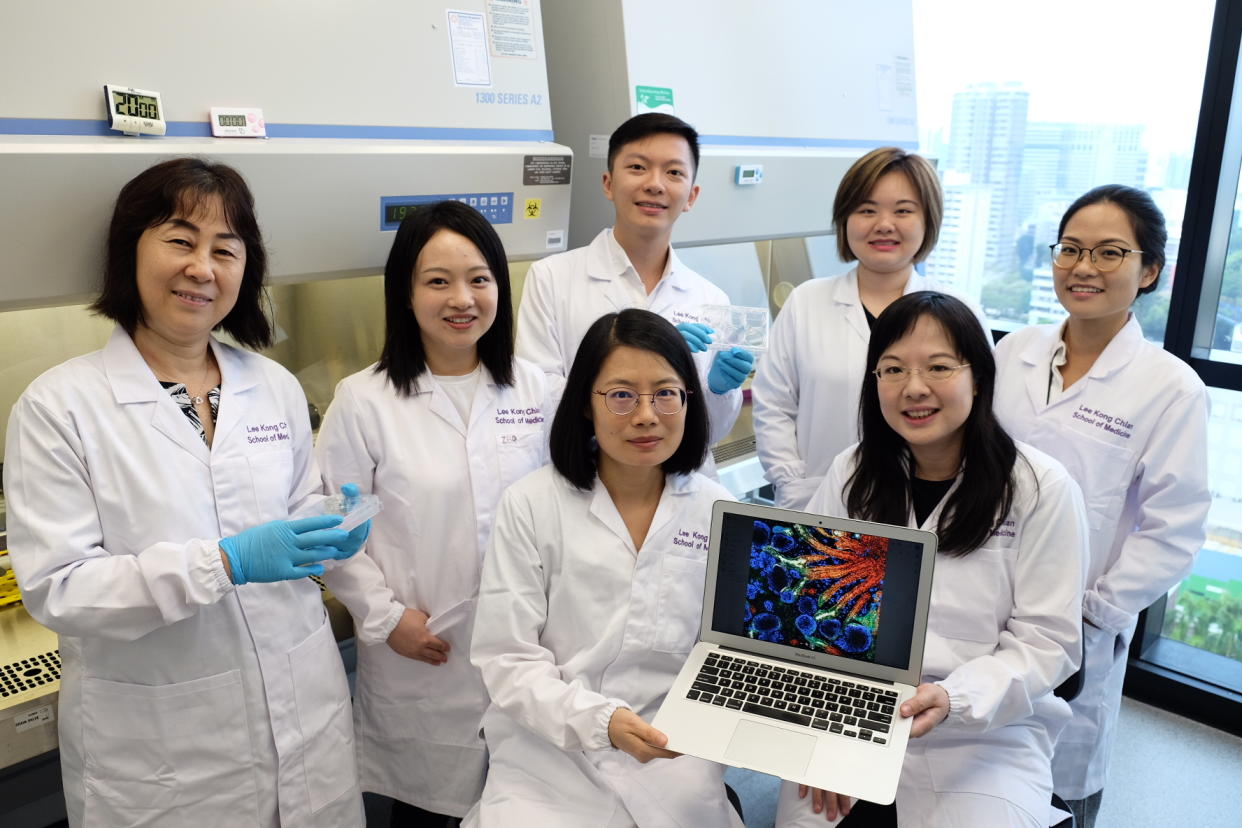NTU research team grows 'mini kidneys' to better understand how kidney diseases develop

SINGAPORE — A research team led by Nanyang Technological University (NTU) Singapore has developed a new way to better understand how kidney diseases develop in individual patients: by growing “mini kidneys” in the laboratory.
The mini kidneys, or kidney organoids, were grown using skin cells from a patient with polycystic kidney disease, one of the most common causes of kidney failure in adults.
The cells were reprogrammed and then developed into the kidney organoids, which are similar to kidneys in early development in human foetuses. They are then used to validate the effects of two drug molecules with potential to treat the kidney disease.
Finding out which drugs are most effective
“A patient’s genetic makeup is closely intertwined with how their kidney disease will develop,” said Assistant Professor Xia Yun, the research team leader from NTU Singapore.
“Our kidney organoids, grown from the cells of a patient with inherited polycystic kidney disease, have allowed us to find out which drugs will be most effective for this specific patient. We believe that this approach can be extended to study many other types of kidney disease.”
The research was published in the Cell Stem Cell scientific journal in July. Past approaches to testing potential treatments had not taken into account of the fact that the genetic errors that cause kidney diseases vary from patient to patient.
New insights into human kidney development
The kidney organoids developed by the NTU Singapore team may also offer new insights into human kidney development, which currently cannot be studied in depth due to concerns surrounding human stem cell research.
They may also be used to better understand the development of nephrons, which seem to provide some protection against high blood pressure and kidney failure.
“A thorough understanding of human embryonic kidney development, especially how environmental factors influence the process, may help us develop ways to promote a high birth nephron number for foetuses as they develop during pregnancy,” said Asst Prof Xia.
Other key members of the research team include NTU Assistant Professor Foo Jia Nee, and Professor Juan Carlos Izpisua Belmonte from the Salk Institute for Biological Studies in San Diego.
Prof Belmonte, a world-renowned stem-cell scientist, said, “Although we are still quite far away from using these kidney organoids for replacement therapy, this study has made a small step closer to this ultimate goal.”
Other Singapore stories:
First public on-demand autonomous vehicle trial to begin on Monday at Sentosa
Fake perfume and cosmetic goods worth more than $800,000 seized, 2 women arrested
Doctor accused of touching female patient's chest during consultation



